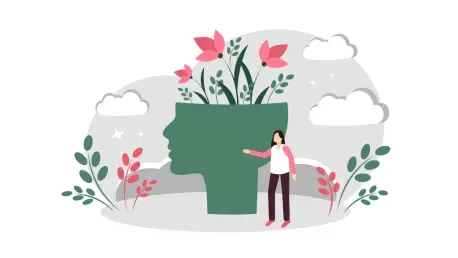The ongoing crisis within mental health services for Aboriginal communities in Western Australia highlights the urgent need for innovative, culturally sensitive solutions. Existing frameworks have often fallen short in effectively addressing these communities’ needs, leaving many individuals in distress and without proper care. In response to this pressing challenge, pivotal initiatives like the “Looking Forward, Moving Forward” project, led by Associate Professor Michael Wright, are exploring transformative approaches. Professor Wright, a Yuat Noongar man and academic at Curtin University, emphasizes that a genuinely inclusive mental health system requires the integration of Aboriginal cultural wisdom, especially the insights of respected Elders. His work reveals that infusing Aboriginal perspectives into mental health care not only enhances trust but also lays the foundation for more effective and empowering service delivery.
A Culturally Informed Approach to Mental Health Care
Professor Wright’s keen understanding of the cultural disconnect between traditional health services and Aboriginal communities has driven the creation of a new care model. Current systems often overlook or marginalize Aboriginal knowledge and protocols, which are vital for developing trust and efficacy in mental health services. Wright’s work focuses on the need for frameworks that respect and integrate these cultural elements, thereby facilitating healthier and more meaningful engagements between healthcare providers and Aboriginal communities. At the heart of Wright’s methodology is the Noongar principle “Burdiya to Burdiya,” translated as “Boss to Boss.” This principle underscores the leadership role of Elders in mental health strategies, recognizing them as invaluable co-researchers and cultural guides. Their involvement is key to understanding the communities’ specific needs, and their leadership helps to ensure that these needs are met authentically and effectively, fostering deeper connections between healthcare systems and the people they serve.
The innovative framework introduced by Wright is known as Debakarn Koorliny Wangkiny, or “Steady Walking and Talking” Conditions for Engaging. It establishes a structured and respectful approach to foster genuine relationships between mental health services and Aboriginal communities. By incorporating Aboriginal values, knowledge systems, and protocols into the care process, health services can create a culturally secure and inclusive environment. This framework is already being implemented across various healthcare services in Western Australia, promising a more culturally responsive and impactful mental health care experience. Such systemic changes not only address the immediate needs of the Aboriginal population but also set an example of how cross-cultural collaboration can transform sector-wide practices. By imbibing lessons from Aboriginal cultural practices, mental health services become more holistic, addressing not just symptoms but overall cultural well-being, thus contributing to a sustained improvement in public health outcomes.
The Impact of Cultural Leadership and Collaboration
Beyond merely involving Aboriginal Elders, Professor Wright has structured projects that position them as leaders who drive change. The “Looking Forward, Moving Forward” project has been significant in advocating for Elders to be at the forefront of redesigning services. Their leadership is not symbolic but practical; it contributes directly to the project’s success by rooting its strategies in lived experiences and cultural expertise. Such initiatives do not merely reconstruct existing systems; they challenge and redefine how mental health care can be inclusive and culturally congruent, which is critical for sustaining positive outcomes. This project is exemplary, having received substantial funding, including a $2.45 million grant from the Medical Research Future Fund for the “Our Journey, Our Story” initiative. This new phase involves collaborating with key organizations like headspace to co-design secure mental health services specifically for Aboriginal youth, extending the principles and practices gleaned from the initial project to younger generations.
The continued efforts to reform mental health services with Aboriginal cultural wisdom at the center send a powerful message about the potential for sustained change. Empowering Aboriginal communities to lead and participate fully ensures the mental health care provided is not only relevant but also resonant with their realities. The success mobilized by these collaborative efforts illustrates how steady progression, guided by cultural values, can yield a profound transformation in service delivery. It highlights that change does not need to be rapid to be effective; rather, consistent and culturally guided innovation can achieve lasting impact. By focusing on steady, deliberate progress, Wright’s initiatives offer a model for transformation that is thoughtful, culturally attuned, and capable of meeting diverse community needs.
Toward a Future of Inclusive Mental Health Practices
Professor Wright has developed an innovative care model that addresses the cultural gap between traditional health services and Aboriginal communities. Conventional healthcare systems often fail to consider Aboriginal knowledge and protocols, crucial for building trust and effectiveness in mental health services. Wright advocates for frameworks that respect and integrate these cultural elements, promoting healthier interactions between healthcare providers and Aboriginal communities. Central to Wright’s approach is the Noongar principle “Burdiya to Burdiya,” meaning “Boss to Boss,” emphasizing the leadership role of Elders in mental health strategies. Elders are seen as cultural guides and co-researchers, essential for understanding the community’s unique needs and ensuring these are met authentically. The new framework, Debakarn Koorliny Wangkiny, or “Steady Walking and Talking,” outlines a respectful method for connecting mental health services with Aboriginal communities. By incorporating Aboriginal values into the care process, this framework creates a culturally safe environment, transforming practices across Western Australian healthcare services for more culturally responsive care.









